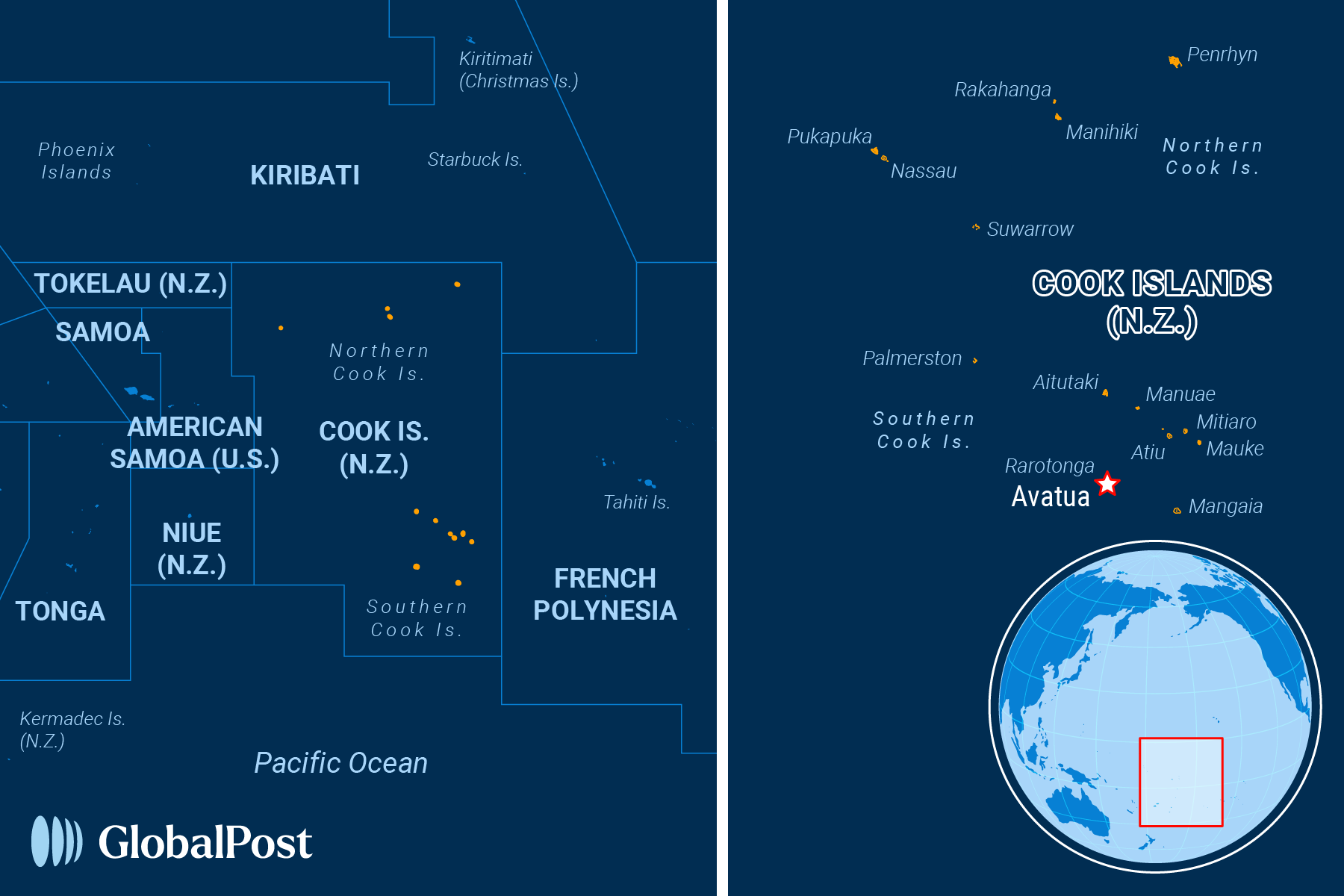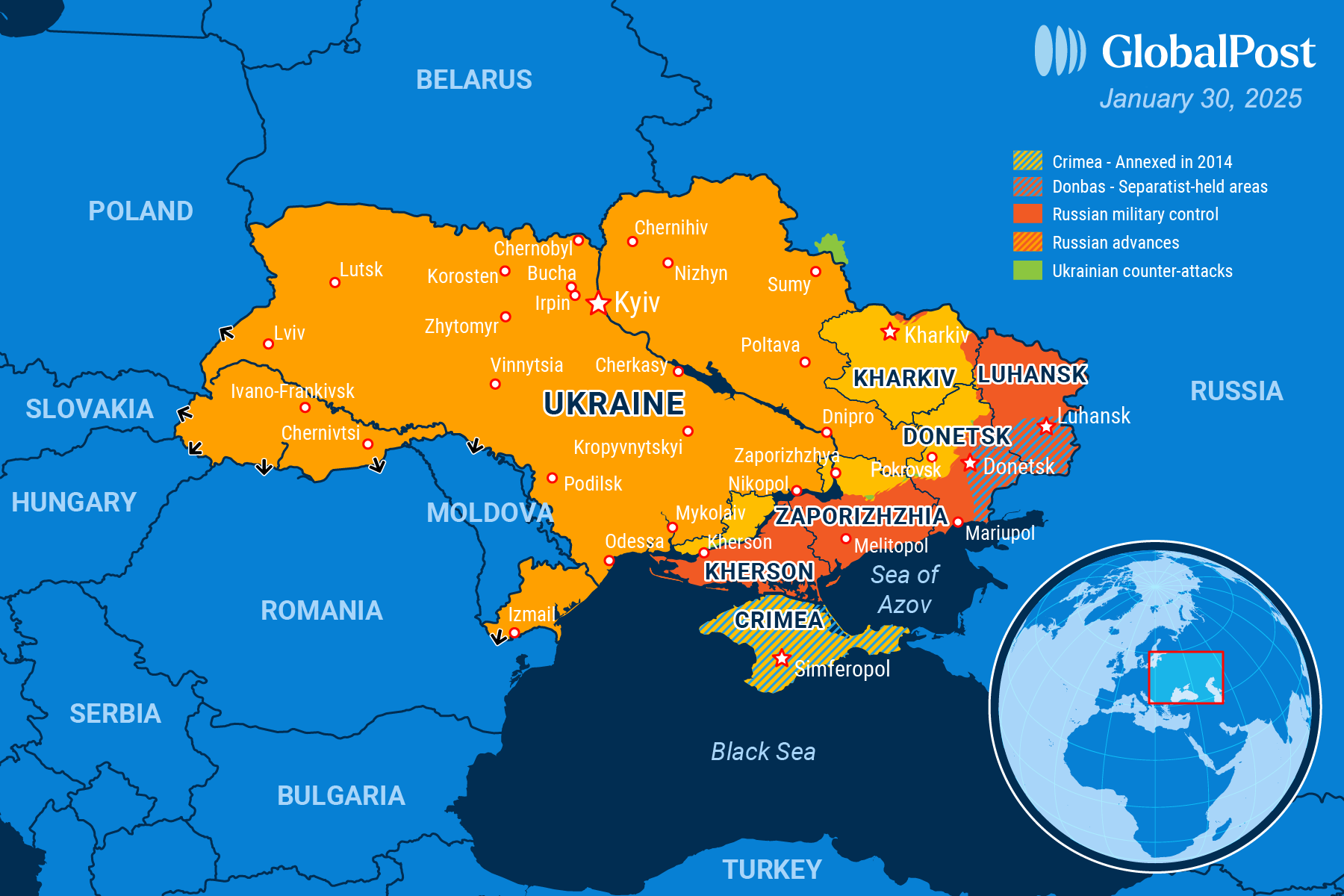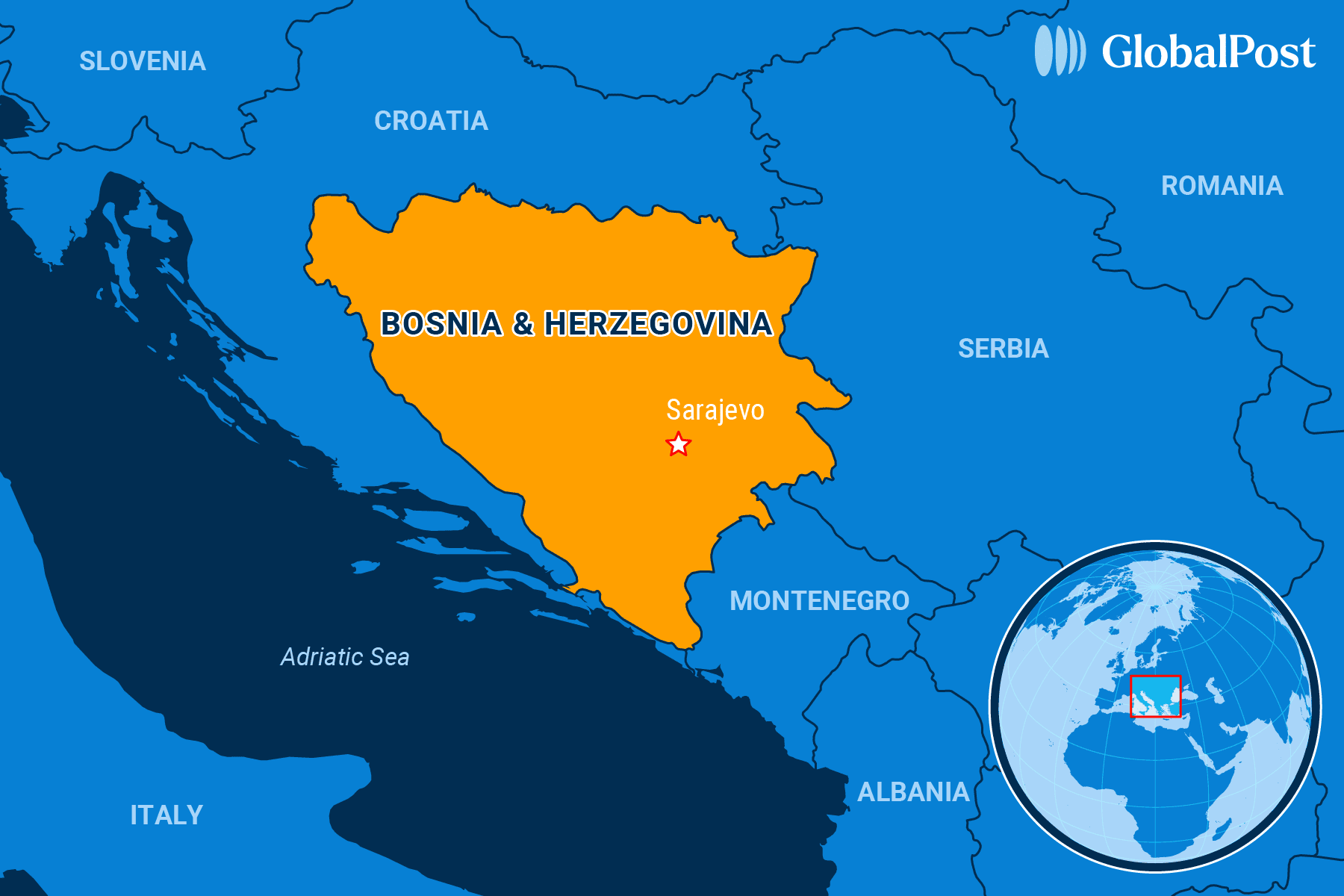Chinese Roulette
NEED TO KNOW
Chinese Roulette
COOK ISLANDS

Earlier this month, Mark Brown, the leader of the quasi-independent Cook Islands, flew to China to make a deal.
The prime minister was trying to expand economic opportunities for the 15-island nation of 17,000 people in the South Pacific, becoming the latest island state in the region trying to capitalize on China’s hunger for influence in the Pacific and the West’s determination to halt that advance.
This time, the island’s effort set off fury in New Zealand.
That anger centers on the “action plan for the comprehensive strategic partnership” that Brown signed in China on Feb. 13, which he says is intended to expand economic prospects for the Cook Islands. The state, once ruled by New Zealand, needs money – its economy is based on its tourism sector, which took a hit during the coronavirus pandemic. Now, it wants to diversify it.
“The Cook Islands will continue to make strategic decisions in the best long-term interests of our people,” Brown said. “Our relationship and engagement with China complement, not replace, our longstanding relationships with New Zealand and our various other bilateral, regional, and multilateral partners.”
The deal, which has only partially been made public, centers on trade, investment, tourism, ocean science, agriculture, technology, education, infrastructure, and transport.
However, what Western countries and environmentalists worry about is both parties’ interest in developing deepsea mining for critical minerals used in high tech, such as rare earth elements and cobalt, despite opposition from other Pacific nations. China is a leader in this type of mining.
At the same time, New Zealand, Australia, and other Western countries worry about whether the deal includes strategic infrastructure such as ports and maritime security arrangements.
The Cook Islands are a self-governing state in “free association” with New Zealand but can make deals with other nations as an independent country. That means in practice that its citizens hold New Zealand passports and New Zealand provides budget support and runs its security and foreign policy as part of a constitutional arrangement. As a result, New Zealand officials say they should be consulted about any such deal in advance.
“Under our constitutional arrangements, we expect, in matters of defense and security to be transparently discussed between partners – that’s all we’re asking for here,” said New Zealand Prime Minister Christopher Luxon, adding that the country has been “blindsided” by the move.
New Zealand officials added that the “lack of transparency” by the Cook Islands could “have major strategic and security implications.”
“We have concerns about the Chinese state military apparatus penetrating deeply into a country that is part of the New Zealand Realm,” a New Zealand government official told the Washington Post.
Brown has said that the deal does not include security aid from China but has not released the details to New Zealand.
Such deals are particularly concerning for Australia, New Zealand, and the US. For example, China struck a security deal with the Solomon Islands three years ago that led to Chinese police officers being stationed in the country. It also sparked concerns over a future Chinese military base there and with it a permanent Chinese military presence in the region. The government of the Solomon Islands has ruled out such a presence.
Still, there are similar concerns regarding Vanuatu and Papua New Guinea, both of which have economic cooperation deals with China.
The Cook Islands, along with 13 other small Pacific nations, hold strategic value due to their geographic location, which is critical for maritime routes, military positioning, and geopolitical influence.
Meanwhile, the spat with the Cook Islands is New Zealand’s second dispute with an island nation in two months. In January, the president of Kiribati, Taneti Maamau, canceled a meeting with New Zealand’s foreign minister, prompting a threat by New Zealand to review aid to the island nation, which, along with Australia’s contribution, is substantial. Australia has also been snubbed by Kiribati recently, even as it has deals in place with the Pacific Island nations of Tuvalu and Nauru that give it veto rights over security partnerships with other countries, namely China.
Still, Kiribati has deals with China that include Chinese police officers being stationed in the country.
China, a massive donor of aid in the region, says the agreement with the Cook Islands would “deepen political mutual trust and expand practical cooperation.” It also expressed bafflement over the concern over its partnerships. “The wariness of some in the West is largely motivated by their own geopolitical considerations, rather than a genuine concern for the development of the Pacific Islands countries,” wrote the Global Times, a Chinese news outlet close to the government. “Western short-sighted competitive mindset and policy uncertainty are exactly not what the South Pacific countries want to see.”
Meanwhile, the Cook Islands’ China deal isn’t necessarily going down so well at home. While Brown’s cabinet supports it, the opposition Democratic Party filed a no-confidence motion against the president on the day the deal was signed and protests against it broke out last week.
“It is clear that the government’s handling of this matter has left serious questions unanswered about its potential impact on our sovereignty, economic independence, and international relationships,” opposition leader Tina Browne told the Cook Island News. “If the agreement involves … infrastructure development, who will control these projects, and how will they benefit Cook Islanders?”

THE WORLD, BRIEFLY
No Fine Print
UKRAINE

The United States and Ukraine reached a draft agreement on a mineral-rights deal that could be worth up to $1 trillion, with Kyiv hoping the arrangement will secure continued US support amid tensions over Washington’s outreach to Moscow, the Wall Street Journal reported Wednesday.
The agreement, which Ukrainian President Volodymyr Zelenskyy described as a “framework economic deal,” includes the creation of a jointly-owned fund to manage Ukraine’s mineral resources, though key details – including security guarantees for Kyiv – remain unresolved.
Under the proposed arrangement, Ukraine and the US would jointly manage a fund that would allocate 50 percent of the country’s mineral proceeds to reconstruction projects. The agreement reportedly includes a reference to security guarantees, but Zelenskyy has not provided specifics. He reiterated that Ukraine’s primary goal remains NATO membership or an alternative security framework to deter future Russian aggression, Al Jazeera noted.
President Donald Trump announced the deal Tuesday, saying that Zelenskyy is expected to visit Washington on Friday to sign it. However, Zelenskyy has expressed uncertainty over the trip, noting that further discussions with Trump would determine whether the agreement succeeds or “quietly (passes) by.”
While the current memorandum does not require Ukraine to repay previous US aid, Zelenskyy added that any future assistance may need to be reimbursed through mineral revenues.
The deal comes days after Ukraine rejected an earlier US proposal that demanded $500 billion in mineral wealth without offering security guarantees. European officials criticized the initial terms, while Trump called Zelenskyy a “dictator” and falsely accused Ukraine of starting the war. US officials also held direct talks with Russian counterparts to discuss ending the conflict without Ukrainian participation.
The mineral deal has sparked diplomatic concern, particularly in Europe, where leaders fear Trump may push for a ceasefire that benefits Russia. French President Emmanuel Macron met with Trump this week, warning against an agreement that would compromise Kyiv’s sovereignty.
European allies, including Sweden and the United Kingdom, have discussed deploying military contingents to Ukraine if US support wanes, while Germany has opposed such measures in the past.
Observers explained that the deal underscores the Trump administration’s efforts to access Ukraine’s vast mineral wealth, which includes reserves of titanium, graphite, lithium, and rare earth metals.
The United States has historically relied on China for rare earth elements, and Trump has emphasized securing alternative sources to strengthen US technological and defense industries.
Meanwhile, Russian President Vladimir Putin has downplayed the agreement, saying that Russia has “significantly more resources” and is open to foreign investment in occupied Ukrainian territories.
Kremlin spokesperson Dmitry Peskov said Moscow is monitoring developments but has not commented directly on the terms of the deal, the BBC added.

Defiance Politics
BOSNIA AND HERZEGOVINA

A high court in Bosnia and Herzegovina on Wednesday sentenced Bosnian-Serb leader Milorad Dodik in absentia to one year in prison and barred him from office for six years for inciting separatism and hindering peace in the fragile Balkan country, Bloomberg reported.
Dodik was convicted on charges that he refused to comply with the recommendations to implement the 1995 Dayton Peace Agreement made by the top international envoy overseeing peace in the Balkan country, Christian Schmidt.
Dodik rejected the accusations as politically motivated and said he would disobey any conviction, threatening to implement “radical measures,” including doubling down on his secession efforts for the Republika Srpska, the independent entity within Bosnia-Herzegovina that he governs, the Associated Press reported.
Dodik’s desire to join the Republika Srpska with neighboring Serbia has led to sanctions imposed by the US and the UK.
A close ally of Russian President Vladimir Putin, Serbian President Aleksandar Vučić, and Hungary’s Prime Minister Viktor Orbán, Dodik is also accused of corruption and pro-Russia policies.
His secession threats have elicited concern in the country, still reeling from the 1992-95 war that killed thousands and displaced millions. The US-sponsored Dayton agreement ended the war and created two widely autonomous regions within the country, the Republika Srpska and the Bosniak-Croat Federation.
According to the agreement, high representatives can impose decisions and change laws in the country but Dodik repeatedly called Schmidt’s recommendations illegal with regard to Republika Srpska.
Thousands gathered on Wednesday to support Dodik in the Bosnian-Serb administrative capital of Banja Luka. He told supporters he could deal with tougher situations.
Dodik said the Bosnian-Serb parliament will vote to reject his conviction even as he plans to appeal.
Dodik’s actions are seen as a challenge to the already fragile central government of Bosnia and a threat to the country’s recent European Union membership talks.

Welcome, Peace
SENEGAL

Senegal reached a historic peace agreement with separatist rebels in the country’s southern region of Casamance this week, ending one of Africa’s longest-running conflicts, Africanews reported Monday.
According to local reports, Senegalese Prime Minister Ousmane Sonko and leaders of the Movement of Democratic Forces of Casamance (MFDC) signed the deal Sunday following three days of negotiations brokered by neighboring Guinea-Bissau.
Sonko described the deal as “an important agreement which is a very big step towards peace in Casamance.”
The southern Casamance region – mostly cut off from the rest of the West African country by The Gambia – has been mired in conflict since 1982, when security forces crushed an MFDC-led demonstration, driving armed separatists into the bush, according to Agence France-Presse.
The fighting has killed thousands of people and devastated much of the region’s economy.
While the MFDC has sought Casamance’s independence for decades, recent years have seen renewed peace efforts.
In 2023, more than 250 rebels surrendered their weapons in the separatist stronghold of Mongone.
Meanwhile, Senegalese authorities have begun resettling displaced communities as they dismantle rebel bases, including those near the Guinea-Bissau border.

DISCOVERIES
All in the Timing
Humans might not be the only ones who struggle to adjust to daylight saving time (DST).
A new study by the University of Toronto used motion-sensitive watches to track the activity of 25 sled dogs and 29 canine pets during the week following Canada’s fall time change in November 2021.
The researchers found that DST temporarily disrupted working dogs’ routines, while most companion dogs showed little to no change.
According to the researchers’ observations of dog activity both at sunrise and at the time their owners’ morning alarms went off, pet dogs did not seem to need any adjustment to DST based on sunrise on either the first day of DST or during the following week, despite their owners waking up earlier, the Washington Post reported.
In contrast, strict routines dictate working dogs’ days. The study tracked the activity of 25 sled dogs – huskies or malamutes – at sunrise and at the time of the arrival of their handlers at 7.30 a.m.
On the day DST came into effect, the study found that sled dogs were much more active almost an exact hour before their handlers arrived. The working dogs’ morning behavior returned to normal two days after DST took effect.
Overall, the researchers were surprised at how easily the dogs adapted to the time change. However, they expected a link between sled dogs’ morning activity and sunrise, considering that these dogs spend most of their time outside.
They found instead that sled dogs aligned their morning activity to the handlers’ arrivals rather than to sunrise, a reminder of the influence humans have not only on pet pooches, as previously thought, but also on working dogs.
